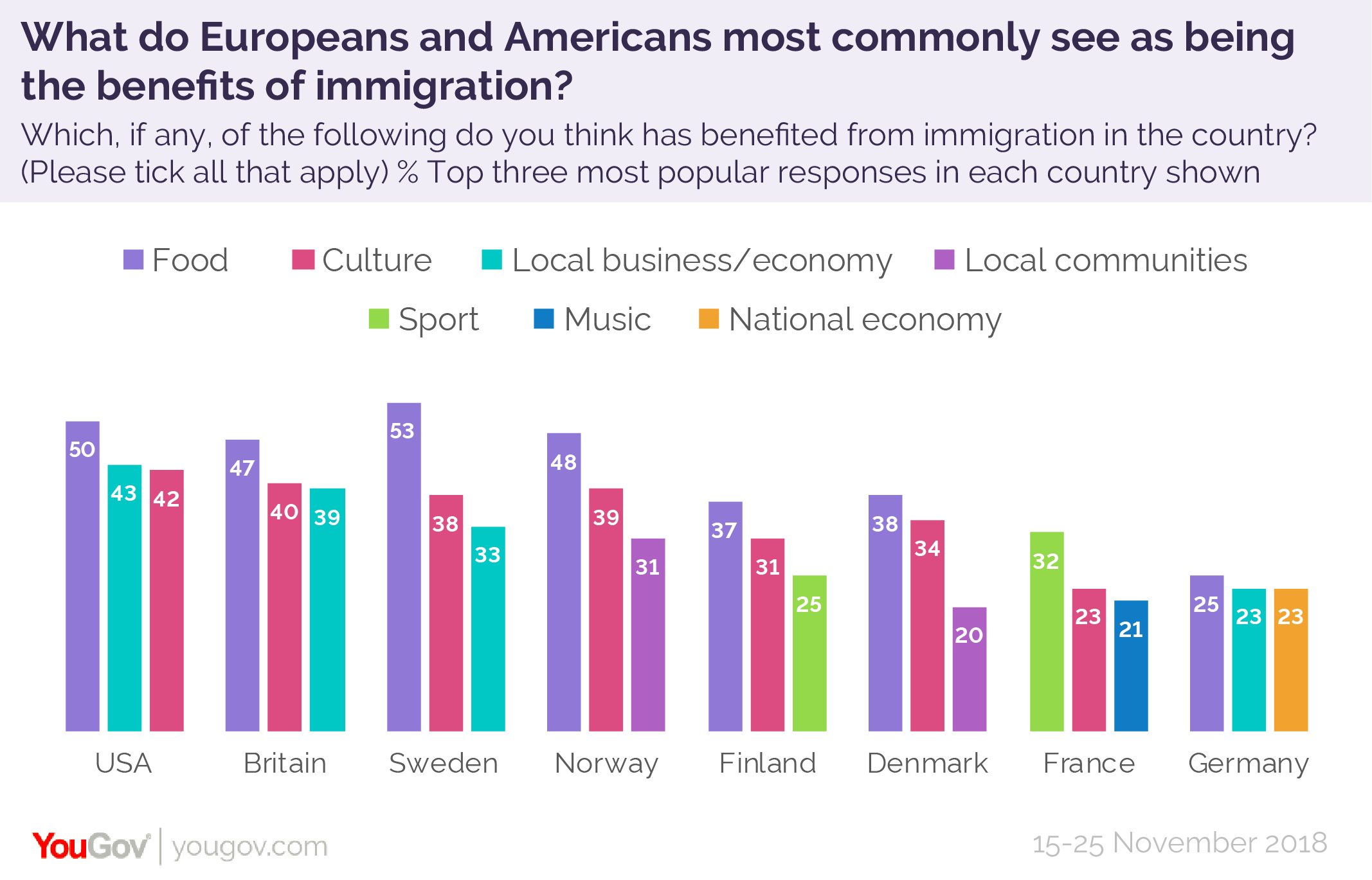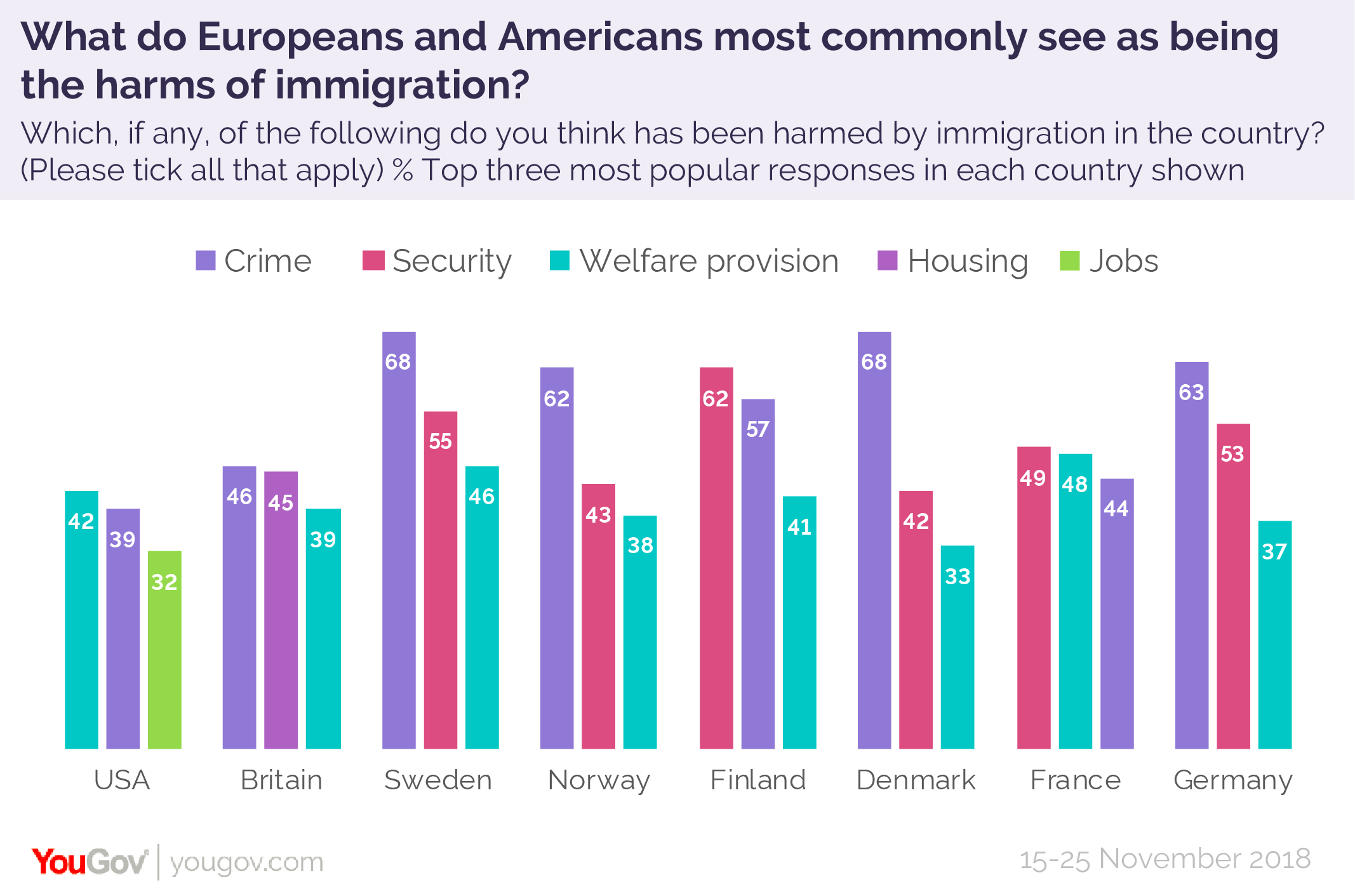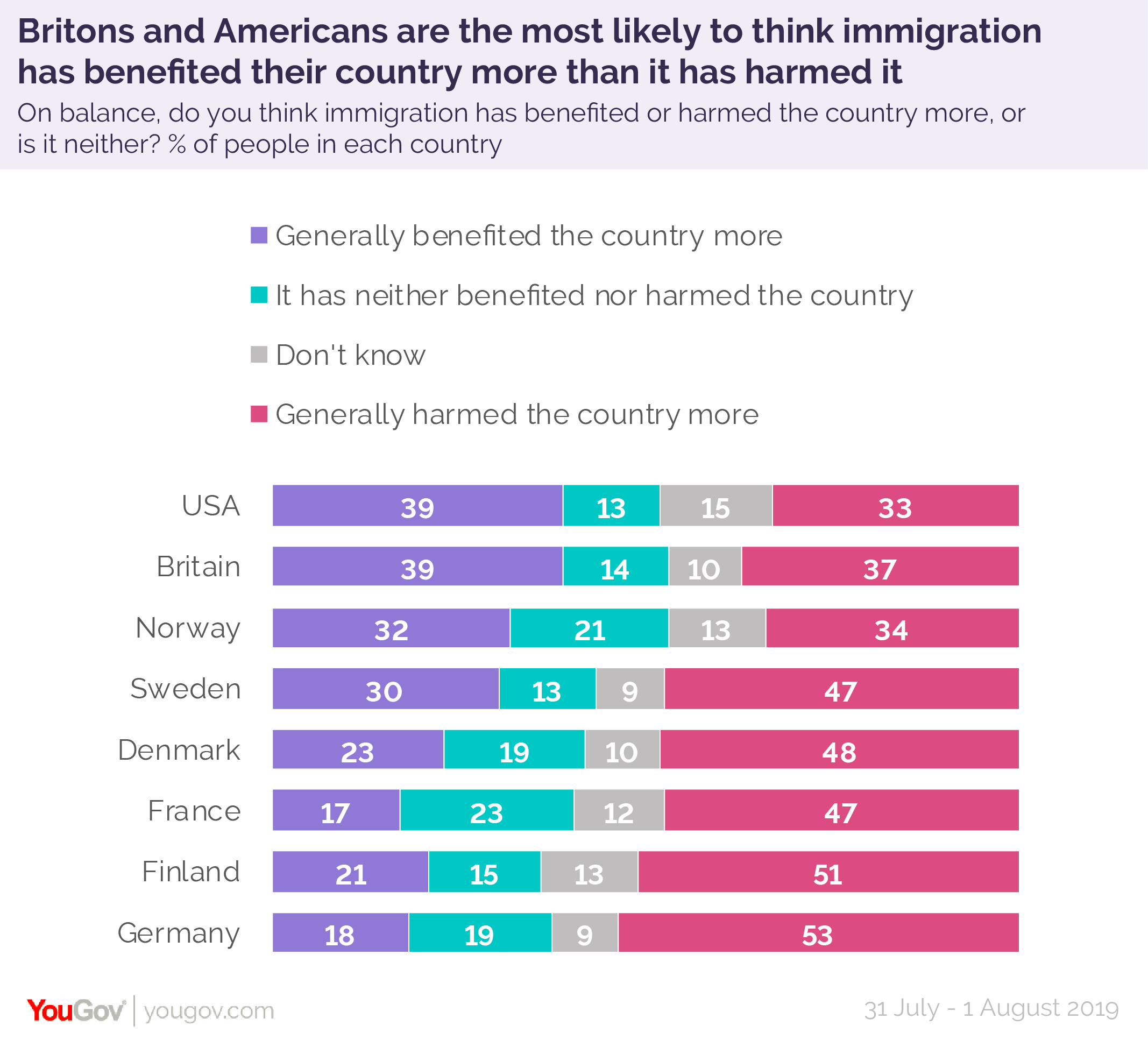Polls and Pols
Read more about InAlienable.Support Quixote Center’s InAlienable program!
InAlienableDaily Dispatch
June 17, 2019
I am never sure what to do about polls as an indicator of people's political views. The findings are driven by the way questions are asked and the answers that are provided for respondents to choose from (seems obvious). Which is to say, polls rarely capture what people actually think about a topic, but at best give a sense of how they prioritize the options pollsters give them. That said, a recent survey by YouGov measuring people’s sense of the pros and cons of immigration for their countries was interesting. For example, of the countries surveyed, people in the United States had the most positive outlook on immigration.
The YouGov study was conducted in the United States, Britain, Sweden, Norway, Finland, Denmark, France and Germany. Three sets of questions were presented: What was the primary benefit of immigration, what people saw as the greatest negative impact of immigration, and how people generally saw immigration affecting their country. The results were interesting.
On the greatest benefit, in all of the countries surveyed except France, the choice was “better food.” For France it was sports - which if you’ve ever watched the World Cup you’d understand. For the United States the benefits to the local economy came in second with culture coming in third. (Note: What culture means, distinct from food, music and sports, all other options, is not exactly clear). Here is the graph.

In terms of the greatest harm caused by immigration, the United States was an outlier, being the only country where people identified welfare provision as the greatest harm. In all other countries it was crime (number two in the United States). Here’s that graph.

Finally, and most interesting for those tempted to look outside the Trump bubble, the United States and Britain were the only countries where more people held the view that immigration has generally benefited the country over that those who felt it had generally harmed the country.

If we are to try and draw any lessons from this poll, aside from people apparently appreciating taco trucks and Indian carry-out, those lessons are mixed. On the one hand, the rhetoric over reality impact is sobering: More people are concerned about immigration’s impact on crime and welfare than other issues, even though immigrants commit crimes at lower rates than “native born” people in the United States and are not allowed to participate in most welfare programs whether unauthorized immigrants or permanent residents. One suspects this finding of misunderstanding will give fuel to the fire for those who beat on these drums for political purposes (e.g. Trump).
It is important to note that despite the heavy-handed approach this administration has adopted and the rhetoric that has accompanied it, more people look favorably on immigration in this country than others. Those that have tracked these opinions over time, have found that Trump’s particular brand of nativism seems to have led to a backlash among other voters, and that in fact, pro-immigrant attitudes have increased under this administration.
As we approach the next election cycle, this is very important to keep in mind. Many pundits have suggested that Democrats tack right on immigration to capture some portion of “pro-Trump” voters. Even so-called liberal leaders like Hillary Clinton and Tony Blair have said the same for Social Democratic parties in Europe. Rather than cede ground to the “populists,” it is important to get tougher on immigration, the argument goes, if democracy is to survive (David Frum’s actual argument). Whether one buys this notion that somehow the Democrats are inherently better for democracy writ large, or not, it is worth pointing out that moving right on immigration won’t help them win elections. It is a fallacious argument.
At least, Zack Beauchamp, writing in Vox today, makes a compelling case for this. Comparing research done on European elections and prior elections in this country, he argues that Democrats would lose from adopting more restrictionist immigration policies.
One paper compared data on Barack Obama’s campaign in 2008, which had a comparatively generic outreach program to Latinos, to its 2012 campaign, which focused heavily on turning out Latino voters by emphasizing pro-immigration positions like the Deferred Action for Childhood Arrivals (DACA) program. The data concluded that “Obama’s Latino targeted outreach was (1) remarkably effective at winning over Latino voters; and (2) it had coattail effects for Democratic Senate candidates.”
There’s reason to believe this could be even more true in the Trump era. While Trump has mobilized a vocal minority of anti-immigrant voters in the Republican Party, survey after survey has shown that this has led to a backlash among the rest of the population, with numbers of Americans expressing support for immigration reaching historic highs in tracking polls.
For now Democrats in the presidential race, and the leadership in Congress seem willing to bet that support for Dreamers, for example, will help them at the polls. However, the candidates willing to press the immigration conversation further into much needed critiques of enforcement measures at the border and detention are few. As the field narrows next year, there will be more pressure to avoid these topics. Certainly in the general election, whoever wins the Democratic primary will feel pressure to tack right on a number of issues, and especially immigration. The research suggests this will be a bad idea.
